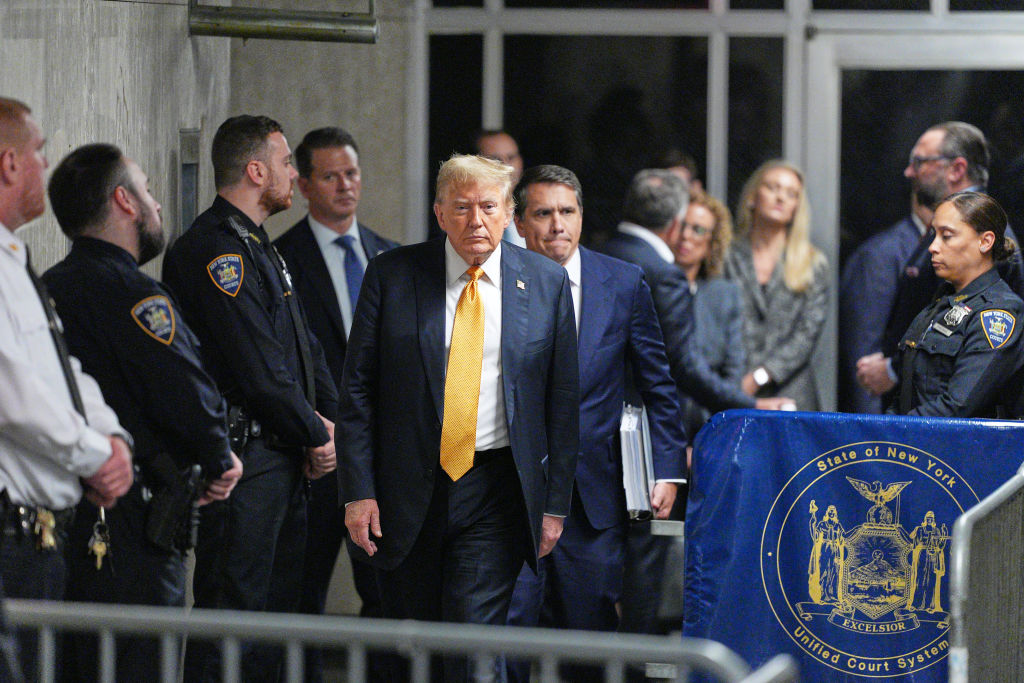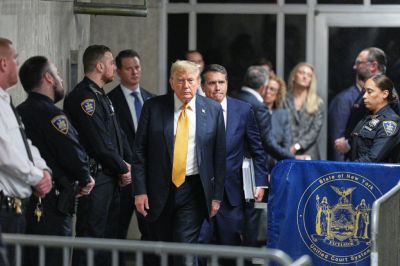As jurors in Donald Trump’s Manhattan hush-money trial entered deliberations this week, a post on X (formerly Twitter) by Fox News’ John Roberts sparked controversy about whether juror unanimity would be required to convict the former president.
On Wednesday morning, Roberts posted that Judge Juan Merchan, who is overseeing the New York trial, “just told the jury that they do not need unanimity to convict,” and that as long as all 12 jurors agreed that some crime had been committed, Trump could be found guilty.
Conservative pundits, politicians, and news outlets including Steve Bannon, the Daily Caller, and Republican Sens. Josh Hawley and Marco Rubio, reacted quickly to the news, decrying the trial, in which Trump is accused of falsifying business records to conceal hush money paid to a porn star, as a “mockery” and a “sham.”
Roberts’ post, however, is misleading and misstates Merchan’s jury instructions. To convict Trump of felony charges, the jury will be required to reach a unanimous guilty verdict.
Trump is being charged with the falsification of business records in the first degree, which requires an additional element of that falsification being done in furtherance of another crime—in this case, the violation of state and federal election law and tax fraud. It is the attempt to conceal this other, uncharged crime that elevates the falsification charges from a misdemeanor to a felony crime.* While the jury will need to agree unanimously that Trump knowingly falsified business records in furtherance of another crime in order to convict him, it does not need to unanimously agree on which specific other crime that was. Merchan’s instructions relate to this additional crime, not to the primary charge, and explain that jurors need to agree only that Trump falsified the records in order to conceal some crime.
Some, including South Dakota Gov. Kristi Noem, also argued on social media that the instructions violate Supreme Court precedent, citing a 1999 decision in Richard v. United States that ruled that juries in “continuing criminal enterprise” cases must reach unanimity on which specific violations comprise the continuing series. Noem posted on Facebook
Judge Merchan’s jury instructions are a direct violation of Richardson v. US, a decision that LIBERAL Justice Breyer wrote and CONSERVATIVE justices like Scalia and Thomas agreed with.
Totally RIGGED trial!
This Supreme Court ruling applies specifically to the continuing criminal enterprise statute—a federal law—and does not apply to state cases like Trump’s.
Merchan’s jury instructions were determined more than a week ago following arguments between prosecutors and Trump’s legal team. Despite Trump’s team arguing that jurors should be required to agree on a single underlying crime, Merchan sided with prosecutors, who argued that such special treatment would deviate from the standard application of the law.
Roberts clarified his point in a follow-up post at 12:02 p.m. ET on Wednesday, explaining that all 12 jurors still needed to unanimously find that Trump had committed a crime.
Correction, May 29: This article incorrectly stated that Trump's alleged commission of a predicate crime elevated the falsification charges from misdemeanor to felony. It was the attempt to conceal that did so; Trump did not actually have to commit another crime.
If you have a claim you would like to see us fact check, please send us an email at factcheck@thedispatch.com. If you would like to suggest a correction to this piece or any other Dispatch article, please email corrections@thedispatch.com.







Please note that we at The Dispatch hold ourselves, our work, and our commenters to a higher standard than other places on the internet. We welcome comments that foster genuine debate or discussion—including comments critical of us or our work—but responses that include ad hominem attacks on fellow Dispatch members or are intended to stoke fear and anger may be moderated.
With your membership, you only have the ability to comment on The Morning Dispatch articles. Consider upgrading to join the conversation everywhere.